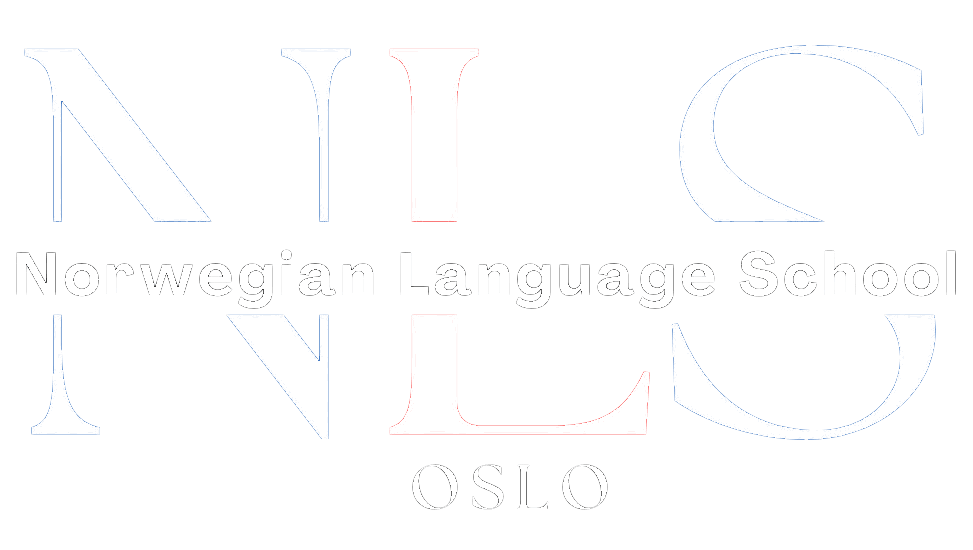

The Literary World of Norway: Norwegian Vocabulary for Book Lovers
Norway, a country known for its stunning landscapes and rich cultural heritage, also has a vibrant literary tradition that spans centuries. From the ancient sagas of the Vikings to the modern works of contemporary authors, Norwegian literature offers a unique insight into the country’s history, culture, and national identity. Exploring Norwegian literature allows readers to delve into the minds of some of the country’s most celebrated authors and gain a deeper understanding of Norway’s literary landscape.
Table of Contents
ToggleKey Takeaways
- Norwegian literature has a rich history and has contributed significantly to the country’s national identity.
- Key Norwegian authors include Henrik Ibsen, Knut Hamsun, and Jo Nesbø, who have all made significant contributions to the literary world.
- Learning essential Norwegian vocabulary for book lovers can enhance one’s reading experience and appreciation of Norwegian literature.
- Norse mythology has had a significant influence on contemporary Norwegian writing, with many authors drawing inspiration from these ancient tales.
- Crime fiction has become a cultural phenomenon in Norway, with authors such as Jo Nesbø gaining international recognition for their work.
Understanding Norwegian Literature: A Brief Overview
Norwegian literature can be divided into several distinct periods, each with its own themes and characteristics. The medieval period saw the emergence of the sagas, epic tales of Norse mythology and heroic deeds. These sagas were passed down orally for generations before being written down in the 13th century.
The 19th century marked a significant shift in Norwegian literature with the rise of romanticism. Authors such as Henrik Wergeland and Bjørnstjerne Bjørnson explored themes of nature, love, and national identity in their works. This period also saw the emergence of realism, with authors like Henrik Ibsen and Knut Hamsun depicting everyday life in Norway with a keen eye for detail.
In the 20th century, Norwegian literature experienced a surge of experimentation and innovation. Authors like Sigrid Undset and Tarjei Vesaas pushed the boundaries of traditional storytelling, while others like Jens Bjørneboe tackled social and political issues head-on. Today, Norwegian literature continues to evolve and adapt to the changing times, with a diverse range of voices and styles.
Norwegian Vocabulary for Book Lovers: Essential Words and Phrases
For non-Norwegian speakers interested in exploring Norwegian literature, it can be helpful to familiarize oneself with some commonly used words and phrases. Here are a few essential vocabulary words for book lovers:
– Bok (book): This is the Norwegian word for book, and it’s a good place to start when building your vocabulary.
– Forfatter (author): This word refers to the person who writes a book or other literary work.
– Roman (novel): If you’re interested in reading a novel, look for the word “roman” on the cover or in the description.
– Dikt (poem): If poetry is more your style, keep an eye out for the word “dikt” when browsing for books.
– Lese (to read): This verb is used to describe the act of reading. If you want to say “I am reading,” you would say “Jeg leser.”
When it comes to translating Norwegian literature, there are a few tips that can help non-Norwegian speakers. First, it’s important to remember that translation is an art, and not all words and phrases have direct equivalents in other languages. It’s also helpful to have a good dictionary on hand, as well as access to online resources and forums where you can ask questions and get help from native speakers.
Exploring the Works of Famous Norwegian Authors
Norway has produced many celebrated authors whose works have had a profound impact on both Norwegian literature and culture. One of the most famous Norwegian authors is Henrik Ibsen, often referred to as the father of modern drama. His plays, such as “A Doll’s House” and “Hedda Gabler,” challenged societal norms and explored themes of individual freedom and social responsibility.
Another notable Norwegian author is Knut Hamsun, who won the Nobel Prize in Literature in 1920. Hamsun’s novel “Hunger” is considered a classic of modernist literature and explores themes of alienation and existential angst. Other famous Norwegian authors include Sigrid Undset, whose historical novels like “Kristin Lavransdatter” depict life in medieval Norway, and Jo Nesbø, known for his gripping crime novels featuring detective Harry Hole.
Each of these authors has a unique literary style and explores different themes and subjects in their works. Henrik Ibsen, for example, is known for his realistic portrayal of human psychology and social issues, while Knut Hamsun’s writing often delves into the inner thoughts and emotions of his characters. These authors have left a lasting impact on Norwegian literature and continue to be celebrated both in Norway and around the world.
The Role of Norwegian Literature in Shaping National Identity
Norwegian literature has played a crucial role in shaping the country’s national identity. Through its exploration of history, culture, and societal issues, Norwegian literature reflects the experiences and values of the Norwegian people. It provides a window into the country’s past and helps to preserve its cultural heritage.
One example of Norwegian literature that has contributed to national identity is the sagas of the Vikings. These ancient tales, passed down through generations, tell stories of heroic deeds, battles, and exploration. They provide insight into the values and beliefs of the Norse people and have become an integral part of Norway’s cultural identity.
In more recent times, authors like Henrik Ibsen and Bjørnstjerne Bjørnson have used their works to explore themes of national identity and social change. Ibsen’s play “Peer Gynt,” for example, examines the conflict between individualism and societal expectations, while Bjørnson’s poem “Ja, vi elsker dette landet” (Yes, We Love This Country) has become Norway’s national anthem.
The Influence of Norse Mythology in Contemporary Norwegian Writing

Norse mythology has had a profound influence on Norwegian culture and literature. The ancient myths and legends of the Norse gods and heroes continue to captivate readers today and have inspired many contemporary Norwegian writers.
Norse mythology is deeply rooted in Norwegian culture, and its themes and symbols can be found throughout Norwegian literature. Authors like Jo Nesbø and Linn Ullmann have incorporated elements of Norse mythology into their works, creating a unique blend of ancient folklore and modern storytelling.
One example of a popular Norwegian book that features Norse mythology is “The Snowman” by Jo Nesbø. In this crime novel, the protagonist, detective Harry Hole, investigates a series of murders that are connected to an ancient Norse myth. The book combines elements of mystery, suspense, and mythology to create a thrilling and atmospheric read.
The Rise of Crime Fiction in Norway: A Cultural Phenomenon
In recent years, crime fiction has become a cultural phenomenon in Norway. Known as “Nordic noir,” Norwegian crime fiction has gained international acclaim for its dark and gritty portrayal of society. Authors like Jo Nesbø, Karin Fossum, and Anne Holt have become household names both in Norway and abroad.
The rise of crime fiction in Norway can be attributed to several factors. One is the success of authors like Stieg Larsson, whose Millennium series set in Sweden sparked a global interest in Scandinavian crime fiction. Another factor is the unique social and cultural context of Norway, which provides a rich backdrop for crime stories.
Norwegian crime fiction often explores themes of social inequality, corruption, and the dark underbelly of society. It offers readers a glimpse into the darker side of Norwegian life while also providing entertainment and escapism. The popularity of Norwegian crime fiction has helped to put Norwegian literature on the map and has contributed to the country’s cultural reputation.
The Importance of Translation in Bringing Norwegian Literature to the World
Translation plays a crucial role in making Norwegian literature accessible to a global audience. While many Norwegians are fluent in English, translating works from Norwegian to English (or any other language) is not a simple task. There are often cultural nuances and linguistic challenges that must be navigated in order to accurately convey the meaning and tone of the original text.
One of the challenges of translating Norwegian literature is capturing the unique rhythm and cadence of the Norwegian language. Norwegian has a distinct musicality and flow that can be difficult to replicate in translation. Translators must also be mindful of cultural references and idiomatic expressions that may not have direct equivalents in other languages.
Despite these challenges, there have been many successful translations of Norwegian literature. Authors like Karl Ove Knausgård, whose autobiographical novel series “My Struggle” has gained international acclaim, have been able to reach a global audience thanks to skilled translators. These translations allow readers around the world to experience the beauty and depth of Norwegian literature.
Norwegian Literary Festivals and Events: A Celebration of Culture and Creativity
Norway is home to several popular literary festivals and events that celebrate the country’s rich literary heritage. These festivals bring together authors, readers, and literary enthusiasts from around the world to celebrate literature and foster a sense of community.
One of the most well-known literary festivals in Norway is the Oslo Literary Festival, which takes place annually in Oslo. This festival features readings, discussions, and workshops with both Norwegian and international authors. It provides a platform for emerging writers to showcase their work and for readers to engage with their favorite authors.
Another notable literary event in Norway is the Bergen International Literary Festival, which takes place in Bergen. This festival brings together authors, publishers, and literary agents from around the world for a week-long celebration of literature. It features panel discussions, book signings, and performances, as well as opportunities for aspiring writers to network and learn from industry professionals.
These festivals and events not only provide a space for literary enthusiasts to come together but also contribute to the cultural fabric of Norway. They showcase the diversity and creativity of Norwegian literature and help to foster a love of reading and storytelling among the Norwegian people.
Norwegian Literature in the Digital Age: E-books, Audiobooks, and Online Communities
The digital age has had a significant impact on Norwegian literature, opening up new avenues for both authors and readers. E-books and audiobooks have become increasingly popular, allowing readers to access a wide range of Norwegian literature with just a few clicks.
Norwegian authors have also embraced the digital age by utilizing online platforms and social media to connect with readers. Many authors have their own websites or blogs where they share updates on their latest works and interact with fans. Online communities and forums dedicated to Norwegian literature provide a space for readers to discuss their favorite books and discover new authors.
In conclusion, Norwegian literature offers a rich tapestry of stories, themes, and perspectives that reflect the country’s history, culture, and national identity. From the ancient sagas of the Vikings to the modern works of contemporary authors, Norwegian literature provides a unique window into the Norwegian psyche. By exploring Norwegian literature, readers can gain a deeper understanding of Norway’s literary landscape and its impact on the country’s cultural heritage.

Norwegian A1-A2
Course Overview The Norwegian A1-A2 course is an online program focused on teaching essential Norwegian grammar and vocabulary. It includes a variety of materials and topics, with opportunities to interact with a Norwegian teacher entirely online. Curriculum Highlights The course covers key areas such as grammar and vocabulary and topics such as family, daily life, education, work, traditions, and leisure activities. Who Should Enroll? This course is perfect for beginners or those at the A1 or A2 levels who want to improve their Norwegian skills. What You Get Access to the full Norwegian A1-A2 course. A monthly 1-hour online conversation with a teacher. Many written and oral assignments. Comprehensive information on Norwegian grammar, Norwegian vocabulary and how to use them, important sentence structures, etc. Tips on additional resources to further enhance your Norwegian learning.
0 students enrolled
Last updated Dec 10th, 2024
If you want to learn Norwegian, you can register for classes here. We look forward to hearing from you and helping you become fluent in Norwegian.





